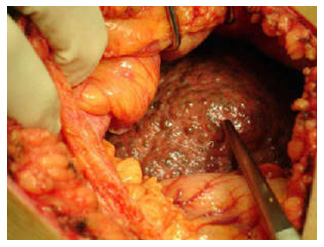Cirrhosis of the Liver
 Alcohol acts on the nervous system and the brain, first as a stimulant, then if more alcohol is consumed, as a depressant. Inside the body, alcohol is detoxified or broken down into harmless compounds by the liver. In the process, liver cells are destroyed. Normally, the liver replaces these cells quickly, but if an excessive amount of alcohol is drunk every day, the liver is unable to repair the damage. The result is a progressive and finally fatal condition called cirrhosis of the liver.
Alcohol acts on the nervous system and the brain, first as a stimulant, then if more alcohol is consumed, as a depressant. Inside the body, alcohol is detoxified or broken down into harmless compounds by the liver. In the process, liver cells are destroyed. Normally, the liver replaces these cells quickly, but if an excessive amount of alcohol is drunk every day, the liver is unable to repair the damage. The result is a progressive and finally fatal condition called cirrhosis of the liver.
Pancreatitis
Alcohol can also cause a fatal disease of the pancreas called pancreatitis, which may occur suddenly or develop gradually.
Neuropathy
This condition is a progressive and debilitating disease of the nerves. Alcohol through its action on the nervous system may cause this condition.
Cardiomyopathy
This condition results in the damage to the muscle of the heart leading to heart failure. Excessive alcohol consumption may contribute to this condition.
Ulcers and Anemia
Alcohol also increases the risk of peptic ulcers and cancer of the digestive tract. Heavy drinking may also lead to vitamin deficiencies, especially of folic acid and vitamin B that causes anemia.
Vision
Alcohol usually has a relaxing effect resulting in less voluntary control over all general body musculature. The delicate control of the fine discrete muscles that move and focus our eyes is particularly affected by alcohol. Light enters the eye through the pupil and passes through the lens. Whatever interferes with this operation affects the impulses that are transmitted to the brain. This in turn affects the clarity of the picture interpreted by the brain. When the brain receives a fuzzy picture, it is unable to make an appropriate response to the traffic scene
The effects of alcohol on a driver
- Reduces control over light entering the eye
- Distorts the eye’s focusing ability
- Reduces visual acuity
- Causes double vision
- Affects the ability to judge distances
- Reduces the driver’s peripheral vision
- Reduces the eye’s ability to distinguish colors
- Reduces visibility at night

